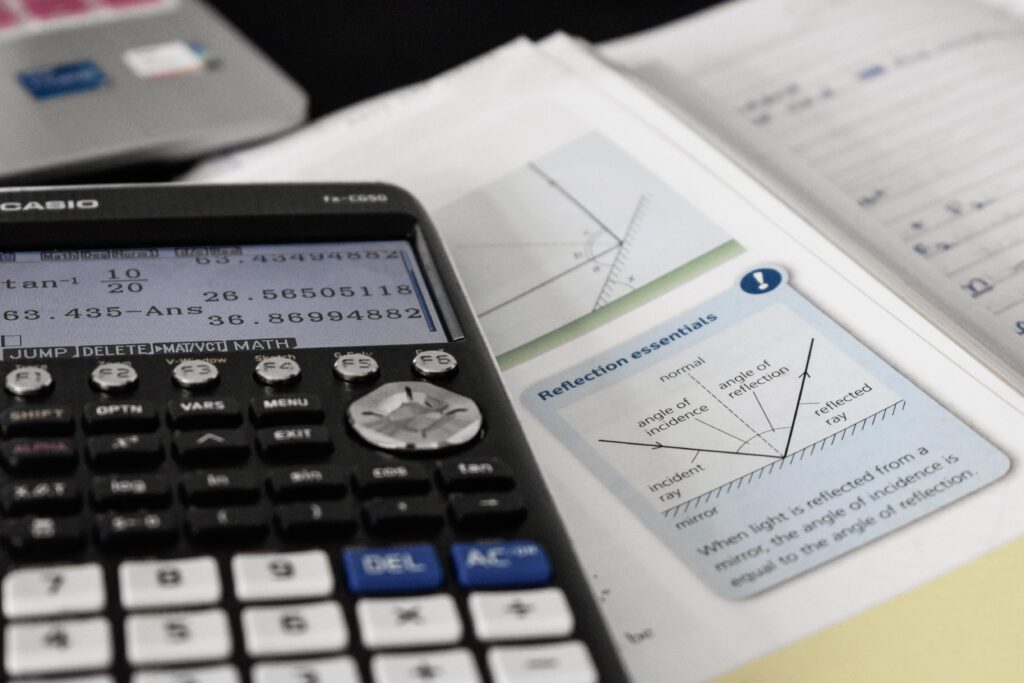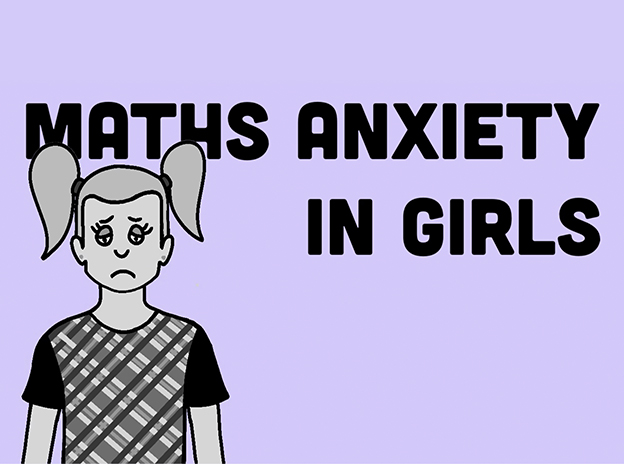WhatsApp:
+353 87 202 0389
Introduction
Maths anxiety, the worry or fear about performing maths calculations, is stopping students from reaching their full potential and it’s affecting girls more than boys. A person with maths anxiety might feel panicked at the thought of working with numbers, their heart will race and it will make it harder to think. When this happens they get overwhelmed and can’t do the sum in their head which makes them believe they’re bad at maths.
At Breakthrough Maths, we see it frequently in lessons, the male students try and fail questions more than females. The girls, on the other hand, are afraid to get it wrong and don’t want to attempt the question.
Digging deeper I discovered that men are statistically proven to be more confident at maths than women. However, the research shows the idea that boys are better at maths is a myth, there is no cognitive biological difference between boys and girls. The results of a UK study about anxiety and maths are shocking. Only 13% of men surveyed said maths made them feel anxious. But, when women were asked, that percentage more than doubled to 29%.
At Leaving Cert level, it’s roughly a 50:50 split between boys and girls. But it’s not the same in STEM. See graph:

Maths is a unique subject
Maths is binary, generally, you are either right or wrong. You fail every single day in maths and that’s hard to grapple with. It’s not like a language subject where you have the time to use your creativity and cultivate your answers. Failing is an essential part of learning and teaches us how to be flexible, adapt, and to overcome obstacles.
I believe girls downplay their abilities and achievements more than boys. This is known as a lower “self-concept”. The main reason girls have a lower self-concept for maths is due to how their parents, teachers, peers and the media speak about girls and maths. We all need to change the conversation and to improve our relationship with maths.
The stereotype
We often hear mothers say they were never good at maths, that it’s the dad who helps the kids with Maths. Is this leading to the stereotype that Maths comes easier to boys than girls?
Does society think girls are bad at Maths? A US survey showed 91% of women believe men are better investors, despite women outperforming men by 0.4% every year. This, I feel, goes back to the historical barriers preventing girls from getting the same education as boys. Thankfully, the barriers have been removed but the false stereotypes remain. In Ireland, the standards improved for girls throughout the 19th and 20th centuries. There was still a barrier as late as 1985 with the primary school curriculum allowing for “separate arrangements in movement training” for boys and girls. This allowed boys to learn skills and techniques, while girls learned style and grace.
Trinity College Dublin didn’t allow women to attend until 1904 despite opening in 1592. Cambridge did not award degrees to women until 1948 despite opening in 1209. Even more recently, Ecole Polytechnique, one of France’s most prestigious institutes, only started admitting women in 1972.
Even after opening universities to women, there were still few women earning Maths degrees. In the 1960s and 1970s, there were only around 30 women in Ireland with Bachelor’s Degrees in Maths. Today there are thousands. For much of the 20th century women weren’t allowed to work in Ireland and be married. In 1937, Margaret MacDonnell, who had a Masters in Maths, was fired from her job as a professor after her marriage. Even as recently as 1977, women working in banks or for the civil service were legally forbidden from keeping their jobs if they got married. No wonder the number of women with Bachelor’s Degrees in Maths was so low. Why would someone go to university if they wouldn’t be allowed to get a job afterwards?
Role Models
Enthusiastic female maths teachers can have a massive influence on young girls’ learning but imagine if Einstein was a girl? There are few female Science, Technology, Engineering and Maths (STEM) role models. The great STEM leaders and visionaries were male; Einstein, the Wright brothers, Leonardo da Vinci, George Boole, and Oppenheimer. Today’s biggest tech companies were founded by men, just look at Apple, Google, Microsoft, Amazon, and Facebook. Boys and girls grow up learning and reading about male success in STEM and it becomes the expectation that boys are made to build the world around us.
Conclusion
Maths is all around us but it is never too late to improve your skills. The vast majority of adults have the ability, they just need to rise above the anxiety and give it a go. It’s important too that we change the conversation around Maths and stop downplaying our ability in the subject, you never know if the next female Einstein could be listening.
TJ





